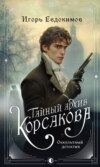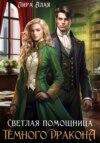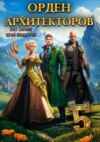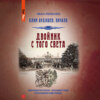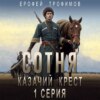Читать книгу: «Sweet Mace: A Sussex Legend of the Iron Times», страница 9
How Tom Croftly had a Holiday
The founder yielded one day to Tom Croftly’s importunities and gave him a holiday, which also meant taking one for himself, and to thoroughly enjoy it they both got up early.
Tom Croftly was first, reaching the Pool-house before it was light, and just as the blackbirds had begun to hunt in the damp corners for slugs and snails.
It was quite an hour later before the founder joined him, to find Tom working away with the heavy old wheelbarrow and the manure-fork.
“Hallo, Tom, you here?” said the founder, looking eastward, where the golden orange flecks told of the coming sun.
“Here? Ay, been here this hour; most emptied the mixen, and got a brave girt bed made; but who’s to work wi’ such a tool as this?” and he held up the fork.
“You, if you’ve any sense in your head,” growled the founder, who was sleepy yet.
“I’ve got some sense in my head,” said Tom Croftly; “but no man can’t work with a noo-fangled tool like that. I never see such a thing. It breaks a man’s back. A fork ought to have three tines in it.”
“And I say it ought to have four,” said the founder, tartly. “Why, as soon as you started to fork dry stuff with the other it all began to tumble through. That new four-tined fork holds it.”
“Ay, and ’most breaks a man’s back,” grumbled Tom Croftly. “Falls through? Why, of course it does. That’s nat’ral, and as it should. It’s the small as falls through, and you takes up all the crumbs after wi’ a shovel. ’Taint like having a holiday to work wi’ a tool like that.”
“There, get on,” said the founder, “and don’t grumble. Lend me the fork.”
He seized the implement, and loaded up the barrow easily and well, turning afterwards to his man, “There, you can’t do better than that.”
“And where’s your crumbs to finish off with at the top?” grumbled Tom Croftly. “We shan’t get much of a cucumber-bed, you’ll see.”
“Look here, Tom Croftly, if you’re going to grumble like this, we’ll go back to the foundry-work.”
“Nay, nay, master.”
“Thou askedst for a holiday, and I said ‘yes,’ and here it is.”
“And my garden wanted it badly, master.”
“Yes; but I’m not going to holiday keep with a grumbler.”
“I’ll never say another word, master, only that tool felt as if Mother Goodhugh had put a spell upon it. Hoop! wup!”
The two latter ejaculations were uttered by the founder’s man, as he lifted the barrow-handles, and then pushed the barrow along over the dewy grass-paths to where the cucumber-bed was to be made.
“Mother Goodhugh never put a spell on anything in her life,” said the founder, stoutly, as he began to unload the barrow in a little square marked out by four strong pegs.
“I dunno about that, master,” said Tom, rubbing his great bullet-head.
“Why, Tom, Tom, thou’rt never such a fool as to believe in ghosts, and sprites, and witches?” said the founder, arranging the stable manure carefully with the fork.
“Nay, nay, master. Oh, no. I don’t believe in ’em, but it was curus that the mould should blow up in that terrifying way after Mother Goodhugh had been.”
“Curious if it hadn’t,” cried the founder, patting down his work. “If Tom Croftly had given a look to the mould first, or if I had – as I ought to have done – there would have been no explosion.”
“Nay, master, I think she ill-lucked the mould.”
“And I think she poured a pail of water in, my lad. Why, Tom, you’re six feet one high.”
“Six foot two and a half, master,” said Tom, in a self-satisfied manner.
“And as strong as a horse.”
“Ay, master, I am. I lifted our pony off his legs the other day.”
“And yet you’re afraid of that poor half-daft old woman.”
“Nay, nay, master; not afeard,” said Tom, stoutly. “I never felt afeard o’ Mother Goodhugh yet; but you see, if she do happen like to be a witch, it be just as well to be civil to her like, and not do anything to make her curse one.”
“Curses don’t do any harm, Tom, my lad,” said the founder.
“I hope they don’t, master, for Mother Goodhugh do curse you a deal.”
“Let her,” said the founder.
“Shall I fetch they crumbs in a trug, master?” said Tom, watching intently the formation of the cucumber-bed.
“We will have the bed a deal higher yet, Tom, and put the crumbs on the top, and a couple o’ hills of nice warm earth a’top o’ that. We must have some finer cucumbers this year than Dame Beckley grows up at the Moat.”
The manufacture of the cucumber-bed went on, and Tom Croftly had the satisfaction of fetching the “crumbs” in a trug or truck-basket; after which, the founder and he had a long turn at the patch of hops, which had been growing rather wild and away from their poles. The wild ones were carefully twisted round the supports, and tied at intervals with rushes to keep them in place, after which, it being seven o’clock, the founder proposed breakfast, and led the way to the house.
Sir Mark had accepted an invitation the previous day, after much protesting that he was still too weak and could hardly get about, and had gone to dine with Sir Thomas at the Moat, and stay the next day over, so that Mace felt herself free and forgetful of her troubles. She set aside the haunting thoughts of the fate of the weapons her father made, and devoted herself to domestic duties that had of late fallen to Janet’s lot.
“Morning, mistress!” cried Tom, coming smiling in at the kitchen door, through which he could see Mace with her sleeves rolled above her white elbows busily trying the new cakes that had been baked for breakfast.
“Good morning, Tom,” cried Mace. “Quick, Janet, get out the cold bacon and draw a mug of ale.”
Tom smiled broadly, as he took his place at the white, well-scrubbed table, for it was an understood thing that whenever Tom Croftly had a whole holiday, that is to say, had a cessation from foundry-work to go in the garden, he had his meals at the house.
The founder’s breakfast was ready, but he was called away, so Mace remained busy about the kitchen, going in and out of the dairy where the golden butter lay in rolls, and the yellow cream was so thick in the broad pans that it went into wrinkles and crinkles, like an old woman’s face when it was skimmed.
The glorious sunshine came in at the open door, with the scent of the flowers, and the bees buzzed about the blossoms as they journeyed to and from their round-topped hives, while Tom Croftly took a long draught of ale, sighed, and then began work upon the new loaf and bacon.
“This be a fine cut o’ bacon, mistress,” said he, as Mace came near.
“I am glad you like it, Tom.”
“Ay, I like the bacon, mistress, but this here knife’s a wonder.”
“What, isn’t it sharp, Tom?”
“Sharp, mistress, bean’t nothing to it. It be terrifying sharp, and it be as keen at the back as it be at the front, and that’s what I don’t like, for it’s risky like at the corners o’ your mouth, and when a man’s mouth is already two sizes too large, it’s a pity to cut it bigger.”
“Take another, Tom,” said Mace, placing one for him.
“Thanky, mistress, that’s kindy of you,” said Tom. “Eh, but you be grown into a flower. Here, only t’other day, and I see thee balancing thyself on thy two pretty little pink legs, and couldn’t get on wi’ my work for watching thee – lest thou should fall.”
“You always were very kind to me, Tom,” said Mace, smiling.
“And always will be,” said Tom Croftly; “for, mistress, it did my heart good to see thee stick up for the master again that old Mother Goodhugh.”
“Poor weak woman!” said Mace, sadly.
“Ay, poor weak old woman; but she’s got a sore heart, mistress, like as – as – some one else have as I knows on.”
“Who’s that, Tom?” said Mace.
“Captain Culverin Carr,” said Tom, striking the table with the haft of the knife. “Ah, I don’t like dressed-up jay-birds from London.”
Mace was silent, but she looked at their old workman with eyes that were half alarmed, half angry, and hearing her father’s voice hurriedly left the kitchen.
“Ay, so his heart is sore,” muttered Tom Croftly, after a glance round to see that he had not been heard. “If I thought that ill-wishing that London spark would keep him away from here, I’d give Mother Goodhugh my biggest couple o’ ducks – that girt young ’un and his brother.”
Tom Croftly stopped and sighed for a long time over his bread and bacon before returning to the enjoyment of his holiday the founder did not join him, however, for a good half-hour longer, when Mace was by his side.
That was a golden day to both – a holiday indeed. No allusion was made to the departure of their visitor, neither was Gil’s name mentioned; but, as if some burden had been removed from both their hearts, they seemed to have made up their minds to have one day such as they had been accustomed to in what seemed like the olden times.
With a straw hat to shade her bright face, Mace was now looking on, while the raspberry canes that had broken loose were retied to their stakes, and then she held the knife as she had a score of times in childhood while the founder went down upon his knees to take the bindings off from some freshly-grafted trees, commenting upon his work, and boasting of its superiority over the grafting done at Dame Beckley’s.
Then there were the cuttings of those curious plants to see to that Gil had brought back from his last voyage, and they seemed to be progressing well, all but one that was being eaten by a grub.
Mace listened eagerly, thinking that her father would mention Gil’s name now, but he went on weeding out a few interlopers before he seemed to recall whence the cuttings came, and then he frowned and turned off to another part of the garden.
The cloud passed away directly, and they were chatting merrily again or listening to Tom Croftly, who possessed a very long tongue, and had plenty to say.
“Lor’, Miss Mace, look at my apple-trees, how they be a-hinging down a’ready!” cried Tom Croftly. “Look at the girt big uns lumpeting all down the boughs. I’ll have to put a strod under yon branch, or a wilt be breaking down.”
“They look lovely, Tom. No scarcity this year.”
“Not there, mistress. It all comes o’ well wassailing the trees. If there’s anything I like, its a good apple-howling in due season.”
“But you don’t think it makes any difference, Tom?”
“Not make any differ, mistress? Why look at my trees this year.”
“Oh, they are loaded enough, Tom,” said Mace, smiling; “but would they not have borne as well without that noise the lads made on New Year’s Eve?”
“Not they, mistress. I like the boys to come round to the orchards, and shout and go round the apple-trees in a ring,” he said, stopping to hold his reaping-hook horizontally, and making a movement with his left hand, as if to complete the circle, while he closed his eyes and repeated the following doggerel, as if it were some sacred verse: —
‘Stand fast, root; bear well, top;
Pray the God send us a good howling crop.
Every twig apples big;
Every bough apples enow;
Hats full, caps full,
Full quarters sacks full.’
“That’s it, mistress; that brings the apples. There’s a fine cluster o’ little wild strawbries here,” he cried, as he “brushed,” as he called it, the thistles and nettles that were springing up under the orchard trees.
“I’ll bring a basket and pick them, Tom,” cried Mace; and she ran quickly back to the house.
“A swap soon gets dull, master,” said Tom, stopping to sharpen the broad-bladed reaping-hook he held, and gazing the while after Mace. “Eh, but it ought to be a girt and good man, master, who has young mistress for a wife. A king wouldn’t be good enough for she.”
“Right, Tom,” said the founder. “Hallo, what’s the matter?” he cried, as Mace came running back in a state of great excitement.
“The bees, father – a swarm.”
Down went Tom Croftly’s hook and whet-stone, and away he and the founder ran to where the bees were in full flight, a late colony, after hanging in a pocket-shaped cluster outside their straw dome for days, having at last persuaded their queen to start.
It was a headlong flight, but not off and away, for as the founder and his man came up it was to find that the busy little insects were darting to and fro, as if bound to describe as many elongated diamonds as they could in the hot sunshine. There was a sharp angry buzzing hum in the air, and, after running into the kitchen, Tom came back with a broken poker and the brass preserving-pan, which he belaboured wildly like a gong, evidently under the belief that the bees would be charmed or stunned into repose.
“Nothing like dinging ’em well, master,” he cried, as the bees darted here and there. “They won’t sting thee, mistress. There, look at the pretties!” he cried. “Well done! What a cast, and as big as a May-day swarm.”
This was as he saw that the queen had settled upon a pendent branch of a young plum-tree, the workers clustering round and over and under, and clinging one to the other, till there was a great insect mass, which made the bough drop lower and lower till it nearly touched the ground.
“That be the very place to have ’em, master,” he cried. “Now, mistress, thou’lt take them, won’t thee? It’s a fine girt swarm. Ye marn’t be afraid, and they won’t hurt thee. I’ll fetch a hive.”
He trotted off, leaving father and daughter watching the great mass of bees hanging some two feet from the ground; and soon after Tom Croftly returned with a clean hive, which he busily rubbed with sugar dissolved in beer, while he held a bee-board under his arm.
“Now, mistress, art ready?” he cried.
“Nay, Tom, I’ll take them myself,” said the founder. “We mustn’t have her stung.”
He took the hive from his man, placed it beneath the great ball of insects, and gave the branch a quick sharp shake, with the result that nearly all fell into the hive. Another shake sent in the rest, so that it seemed as if they must be crushed or infuriated into stinging him to death; but, though some rose and buzzed around his head, he quietly placed the bee-board, handed to him by Tom, over the open hive, deftly reversed it, placed it under the shade of the tree, and left it there for the insects to settle in their new home.
The bees had been left but a few minutes, when, with his face lit up with smiles, the founder exclaimed, “Why, Mace, that’s been a warm job. Tom Croftly would like a mug of ale to drink success to the swarm.”
“And you will have one, too, under the apple-tree, father; and – just one pipe.”
“Get out!” cried the founder, “putting temptation in a weak man’s way.” But he went to the large seat under the old apple-tree, that spread its longest branches over the Pool, and had just settled himself down as Mace returned with his big silver tankard, pipe, and tobacco.
“Hah! that’s prime!” he said, as he seated himself in an easier position, gazing through his half-closed eyes at his luxuriant garden and the glistening surface of the Pool. “Why, here comes the parson. Hey there, Master Peasegood: just in time!”
The stout clerk had seen the founder in his garden, and came panting up, his face seeming to grow broader as he neared the apple-tree.
“Hah!” he sighed, shaking hands as he sat down, “what weak creatures mortals are. Here have I been murmuring against the heat, and the great burden of flesh I have to bear, and all the time there is rest and refreshment waiting to be offered to me. Mace, my darling, if I were not a parson, I’d say by the hand of an angel. Thanks, child, thanks! Cobbe, here’s thy good health, man. May’st thou never be as fat as I.”
He drank heartily and passed the flagon to the founder, who tapped the lid up and down as he said with a look of pride: “My own barley, parson – malted myself; my own hops – grew yonder; and the ale – brewed in my own tub. Good as Dame Beckley’s home-made wine, eh?”
“Don’t talk about it, goodman,” cried the parson, with a look of disgust. “Come, thou hast raised a desire to take the taste out of my mouth that seemed to come in. Give me the flagon once again.”
The founder passed the ale, and the visitor took another draught of so vigorous a kind that, after the operation, Mace started off to refill the vessel.
“Ah!” sighed Master Peasegood, “the dreadful draughts that good, weak woman has presented me to drink are something terrible to think of: – agrimony tea, balm wine, camomile tea, and a score more; but the worst of all is that dreadful juice of her sour well-squeezed grapes, that she calleth wine. Master Cobbe, will you kindly pass the ale, and methinks I’ll take a pipe.”
The parson dined with them, and stayed on as if to supper; Tom Croftly enjoying the rest of his holiday his own way, which was in “terrifying weeds,” as he called it, chopping away with a hoe at the luxuriance that sprang up in the moist, fertile garden. In the evening the seat beneath the apple-tree was occupied, and they sat and talked as the soft running murmur of the water came pleasantly to their ears, while Mace, in the enjoyment of the pleasant hours, and forgetful of her love-troubles for the time, worked as long as she could see. Sir Mark was forgotten, and, in spite of one painful remembrance, Gil’s bronzed, handsome face filled her fancy as she listened to the whirr of the nightjar from the oak plantation, and from the bosky clumps away towards the ironstone hills the thrush’s evening hymn; and then away and away for miles till the sweet songs sounded faint and died away.
Sweet halt in the journey of her life. Sweet music of water and song-bird. Sweet scent of rose and clematis climbing round the windows of the house. The very air laden with sweetness, so that Mace asked herself why she had ever felt unhappy when she was surrounded by such joys.
Not one word or thought had for hours been given to Sir Mark, and he had, as it were, dropped out of her memory for the time, till, just as supper was ready, Mace saw Tom Croftly making signs to her with the handle of his hoe.
She rose, and left her father talking earnestly with the parson, to go to where the foundryman was standing waiting for her to come.
“I’ve about terrified all them weeds, mistress,” he said, “and I’m going home. The bees be all right, and I’ve had a rare fine day; but there be some’at as I want to say to thee, child, and I don’t quite like to speak.”
“What is it, Tom?” said Mace. “Is it any thing I can do for you?”
“Yes, mistress, it be; though I beant quite sattled in my mind whether I ought to tell’ee. Did that there trug as I made you do, mistress?”
“Oh, capitally, Tom. It just holds enough fruit for one day’s picking.”
“That be right, mistress, and I be glad. I got the best ’ood I could. All alder ’ood, and well seasoned; and – ”
“You want me to do something for you, Tom?”
“Well, yes, mistress. My pretty little mistress as I’ve knowed ever since thou couldst toddle. Thou won’t be hurt like and rate me if I speak?”
“No, Tom, I will not,” said Mace, wondering what his request would be.
“Then don’t you be guiled into listening unto that fine London spark, mistress, for he’s a bad ’un, fond o’ wenching, and not good enough for thee.”
Tom Croftly did not wait for an answer to his prayer, but hurried away in a shamefaced fashion, leaving Mace with her breast heaving and the colour burning in her cheeks. The tears rose to her eyes, and she seemed to awaken once more to the realities of the present, and, as if to complete the disillusioning of her heart, she heard the tramp of a horse, and as she rejoined her father she heard the stout parson say —
“Hey, Master Cobbe, here comes thy gay visitor. I think I’ll not stay supper. I’ll say good-night. Ah, Mace, my child, you there? Farewell, my darling. Good-night.”
He rolled off, meeting Sir Mark by the bridge, as the latter caught sight of Mace’s dress through the trees, and effectually blocking the knight’s way as he tried to be polite, till such time as Mace had reached her room to sit for hours thinking of Sir Mark’s return. Then she found herself wondering what Gil was doing, and whether she ought ever to give him a thought now as she recalled the scene which she had witnessed with Mistress Anne.
How Gil and Sir Mark measured Swords
“A courtier,” said Sir Mark, smiling, “Well perhaps I am; but see how I have taken to this rustic, delicious life. I have felt like another man since I have been here.”
“Indeed, Sir Mark,” said Mace gravely, as they stood a couple of evenings later in the founder’s hayfield, where the stack now stood waiting for its crowning of straw.
“Yes, indeed,” he cried. “Look here; I have been with your men to-day and yesterday when they piled up this sweet-scented hay, and I am growing quite a farmer. I know that Master Cobbe was rather too hurried in getting it up, and that it reeks too much, and that if it were covered in now it would go bad.”
“Indeed?” said Mace, and speaking as if her thoughts were far away.
“Yes, indeed,” he cried; “and I am growing wise in gun-casting and powder-making. I am learning day by day; but above all, sweet Mace, I am learning how vain and hollow is the world to which I have belonged, and how happiness is not to be found there.”
“You are talking in riddles, Sir Mark,” replied Mace, dragging herself back as it were to listen to his words.
“Read my riddles, then,” he cried, in a low tone, as he laid his hand upon her arm, and arrested her by the meadow-path. “Mace, dearest, listen to me – but for a few moments. No, no; do not hasten – the evening is early yet, and where could be fitter place for what I would say than this sweetly-scented mead, where the soft evening breeze seems to whisper of that which fills my heart? Mace, dearest, I love you with all my heart.”
“Sir Mark,” she said, turning to look half wonderingly, half in anger, in his flushed face, “do you forget that you are my father’s guest; that this is no place of gallantry, but that I, his simple, country-born child, am a mere rustic, and unfit for such as you?”
“Unfit!” he cried. “Shame, when you are beautiful as the fairest woman of King James’s court.”
“The evening is growing damp, Sir Mark,” said Mace coldly.
“Why are you so distant?” he whispered, trying to take her hand. “Nay, nay, this is too bad, you must have seen, you must know, that I love you.”
“I have seen, sir, that it has pleased you to pass compliments, as seems to be a favourite habit of yours, and you, sir, must have seen that they caused me pain.”
“Pain? When I’d give my right hand, my very life, to save you from a single pang! Mace, you know why I have lingered here, even to getting in disgrace with my Royal master, that I might be near you; and now for reward you grow cold as if we had never met before.”
“Sir Mark, I must return home.”
“Yes, directly, sweet; but, Mace, listen to me. You cannot, you will not, be so cold as this?”
“Sir Mark,” replied the girl, “does my father know that you meant to speak to me thus?”
“Pest on her particular ways,” he muttered. Then aloud, “No; but he shall know, if you wish it, sweet.”
“If I wish it, Sir Mark! I do wish it; and tell him at the same time what I tell you now, that I say I cannot listen to your words.”
He was so taken aback by her firmness that she swung open the gate and passed hastily along the road leading to the house, looking excited, tearful, and greatly agitated – a state of agitation increased as she encountered Gil half-way, and knew that he must see her excited manner.
“Mace,” he said, sternly, “I want a few words with you.”
“Not now; not now,” she said.
“Yes, now,” he cried, angrily. “I cannot bear this coldness longer. You must, you shall, listen to me.”
“No, no,” she cried; “another time.”
“Why another time?” he said. “Ah, I see,” he cried, with jealous fury, for, glancing beyond her, he suddenly became aware of the figure of Sir Mark approaching them; and, turning a curious, inquiring look upon the girl, he glanced back at Sir Mark. “There is the reason, then. And it is for this gay court-bird that rough Gilbert Carr is thrown aside.”
Had it been lighter he would not, in his then excited mood, have read aright the look of reproach in the poor girl’s face as she hurried onward to hide the burning tears that flooded her eyes, and reached home to find Father Brisdone waiting by the garden-gate.
“Ah, my child,” he said, saluting her; “a goodly evening. How sweet the wild-flowers smell! Why, what is wrong? You seem in trouble.”
“Yes, yes, father,” she whispered, excitedly. “A sudden fear has assailed me. Go down towards the meadow, follow them into the wood, if they have gone there; my heart tells of mischief.”
“They? Who, child?” said the father, quickly.
“Sir Mark – Gilbert Carr. I fear they will quarrel.”
“Have they cause?” said the father, inquiringly. “Here is Master Peasegood. He was to meet me. Well met, Brother Joseph,” he said, as the stout clerk waddled up. “Leave it to us, dear child, and we will bring these mad boy’s to their senses.”
“Mad boys – senses!” cried Master Peasegood, mopping his face. “What is wrong? You don’t mean that this Sir Mark and the Captain – ? Oh fie, Mace, my child, fie!”
“Master Peasegood, if you have any feeling for me,” cried Mace, in hot indignation, “go and interpose before there is mischief done.”
“Phew!” whistled the clerk. “Brother Brisdone, come along.”
It was time they started, especially as Master Peasegood’s bravest pace was a very slow one, for no sooner had Mace hurried away than, with his anger and jealousy completely mastering him, Gil strode towards Sir Mark, who, on seeing him approach, far from attempting to avoid the meeting, leaned back against the gate, and stared at his rival with a cool exasperating mien.
Gilbert Carr had been a fighting-man from the time he had first learned to handle a sword; he had also been in command of a ship in many a perilous time, and the result of his training had been to teach him the necessity of coolness in danger. This was a perilous time, and from old custom he began at once to master his excitement, and prepare himself for the encounter that he felt must take place. He was as hot and determined as ever, but he felt that he must gain the mastery over this court gallant, or he would never feel happy more. It would result in his increasing Mace’s displeasure perhaps, but in his cooler moments he might feel the deepest sorrow for having caused her pain.
All the same, though, the thought came upon him that Mace’s name must be left out of the quarrel. It would be cruel in the extreme to have it known far and wide that he and this knight had fought about Mace Cobbe. It would be like a blow at her reputation, and, besides, whatever he might know in his heart of hearts, Sir Mark should not have the satisfaction of jeering at him as the successful lover.
No, there should be some other cause for the fight that would ensue, and it was easy to find one.
Easier than Gilbert Carr expected, for Sir Mark, stung by disappointment and the cold manner in which Mace had received his declaration, after he had, as he thought, carefully laid siege to and won her, was just in the humour to quarrel with a fly. From where he stood he had seen Gil stop and speak to the maiden, and it seemed to him that she had sent Gil on to chastise him for his insolence.
“A confounded little rustic coquette!” he muttered; “and now she sends her bully to me. Curse him, he thinks I am weak with illness and easily managed. Let him mind, or I may deal differently with him to what I did with the old founder.”
As Gil came nearer, asking himself how he should commence the quarrel, Sir Mark’s rage was ready to master him, for he began to feel that all his courtly adulation had been thrown away; that the founder’s daughter had listened in her calm, self-contained way, while he had fooled himself into the belief that he was moulding her, like soft wax, to his will; and all the time this Carr held the key of her heart, and was preferred.
“Curse him, let him mind,” he muttered. “I know one or two stoccatos that he can never have learned; and if I had him at my feet, run through the body, why it would be a service to King James, for the fellow is no better than a buccaneer.”
Gil came steadily up, towards the gate, still at a loss what to say, when Sir Mark insolently faced him, drew himself up, and, staring from his crown to his feet and back again, said sharply, —
“Were you sent to talk to me?”
“No,” said Gil, sharply, “I was not.”
“Oh!” replied Sir Mark, caressing his pointed beard; “I thought, perhaps, the young lady of – ”
“Hold that prating tongue,” cried Gil, angrily, “or I may slit it, to teach it manners. I was not sent to talk to you, but I came to seek and know more of the man who has thought proper to settle himself down here. Hark ye! my good knight and follower of King James, the Solomon, the wise hater of tobacco, I want to know your business?”
“Let us see,” replied Sir Mark, insolently. “Are you authorised to inquire? Recollect, fellow, that you are addressing one of his Majesty’s officers.”
“I authorise myself,” said Gil, quietly, as he fought hard to keep down his rage and be cool. “As for his Majesty and his officers, tell him that down here in the south are some staunch men, who care no more for him, his laws, and his thick-tongued utterances, than they do for his messengers, however gaily they may be clad.”
“You know, I suppose, that I could have you seized, good fellow, and laid by the heels in prison till such time as it pleased his Majesty to have you tried for sedition, and then hung or shot for the peace of his land.”
“A way that would seem most meet to you, I presume,” said Gil, quietly.
“He is beside himself with rage, and yet trying to madden me, but I’ll keep cool and urge him on,” thought Sir Mark.
“I shall strike him directly, if he talks to me like that,” thought Gil.
“Let me see,” said Sir Mark, gazing at his rival with half-closed eyes; “I have pretty well mastered your life, my good fellow; and the country would be purified if you were away. You are one of Raleigh’s crew of buccanneering rufflers.”
“Sir,” cried Gil, proudly, “I am the son of one of the band of brave men who went out with that injured knight, and who look with the most utter contempt upon the north-country faithless puppet who sent him to the block. Pah; he and his followers stink in the nostrils of all good men and true. Let me see,” cried Gil, seizing his opportunity, “by your broad speech, sir, you are one of the paltry, ragged Scots who came south with Solomon to seek a home.”




